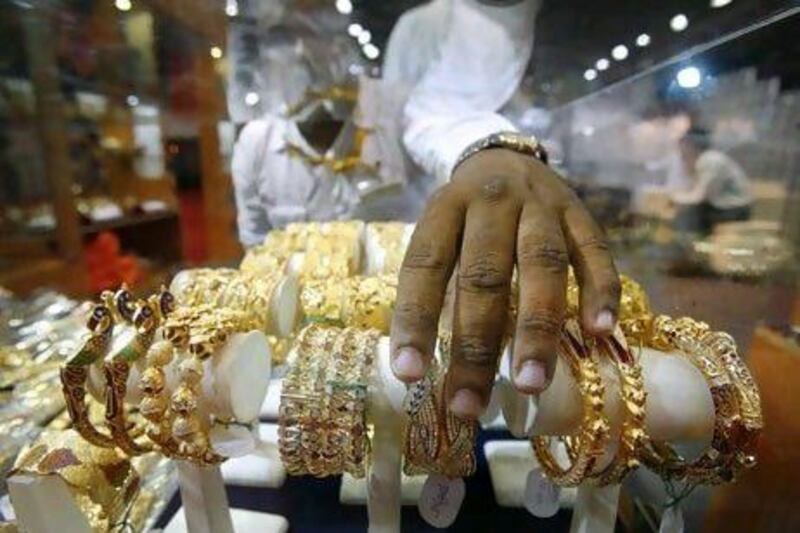Damas, the jewellery retailer, is considering quitting India, the world's biggest gold market, after pulling out of Pakistan.
The move would put an end to plans for 100 stores across the subcontinent and a major joint venture.
"We are looking at our business in Pakistan and India, our relationship and the way we entered the country," said Ibrahim Belselah, the chairman of Damas. "Within our new corporate governance, it's not the best route to do business because we want to be absolutely transparent."
Although India's demand for gold is set to fall this year, the market's potential is still vast. The country bought 960 tonnes of gold last year, about a third of the demand for gold worldwide, according to the World Gold Council.
Morgan Stanley, the investment bank, estimates the value of gold privately owned in India is about US$900 billion (Dh3.3 trillion), while gold consumption accounted for 2.3 per cent of GDP last year.
Damas had planned to take advantage of this lucrative market by opening 100 stores across India over three years in a joint venture it signed with the Indian retailer Gitanjali Group.
But the plans have stalled since March last year when the Dubai Financial Services Authority (DFSA) fined Damas and banned the Abdullah brothers, members of the jeweller's founding family who had been found to have made more than Dh600 million of unauthorised transactions, from executive positions at any company overseen by the regulator.
The DFSA also dissolved the Damas board.
The plans under consideration are part of the company's wider aims to consolidate its core markets in the Middle East and draw a line under the Abdullah brothers scandal that has plagued the company.
Mr Belselah said the Gulf would continue to be the group's priority, despite attractive growth figures in India that resulted in a 100 per cent increase in consumer demand last year over 2009, compared with 21 per cent across the Middle East.
"We are very bullish about Saudi Arabia. It is the key market we need to be in," Mr Belselah said. "We have a strong brand and we are bringing in a new product. We are investing a lot."
He added the company placed a high value on transparency after a gross lapse in oversight by the previous board in allowing the Abdullah brothers to withdraw loans and gold worth Dh600m without shareholder approval.
It emerged last week that the brothers - Tawfique, Tawhid and Tamjid - also owe banks about Dh1.2bn, which was collectively borrowed by the trio's privately held companies Damas Real Estate, Damas Investments and Damas Hotels.
A repayment agreement for Dh1.8bn owed to the banks and Damas is expected to be signed within a month, having been extended a number of times due to the complexity of the bank loans and the varying ownership structures and guarantees.
"There's so many layers and there are different banks around the world," Mr Belselah said. "We thought we were going to finish way early but different languages, different jurisdictions and logistics meant it took a long time."
The repayment deal will allow Damas to proceed with a Dh3bn debt restructuring recently agreed to with banks, which will be used for working capital and loans for investment in expansion.
In many countries across North Africa, the Middle East and Asia, the company is trying to recover hundreds of millions of dirhams of investments, loans and payments for merchandise the three brothers made without proper documentation. Despite this, the company is set be one of the first UAE companies to emerge from the financial crisis on strong financial terms, Mr Belselah said.
Damas's corporate debt restructuring comprises loans worth Dh1.1bn and a working capital agreement worth Dh1.9bn.
"It's a very good rate for the banks and for us. It's a very balanced deal, which is important for the overall economy of the country," Mr Belselah said.
"This was one of the very first companies to go into trouble and one of the first to come out of it on good terms."





